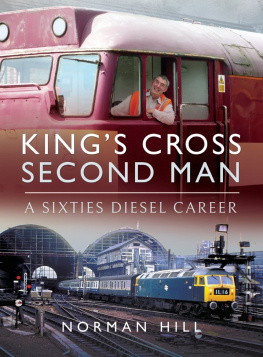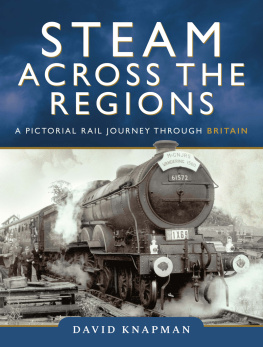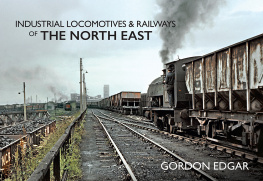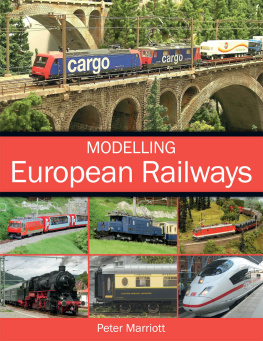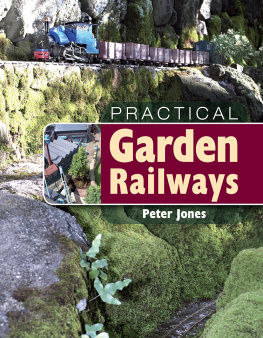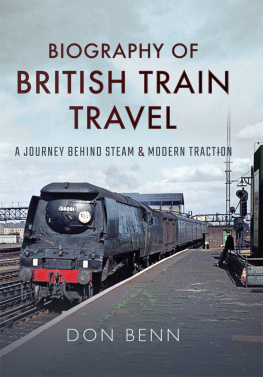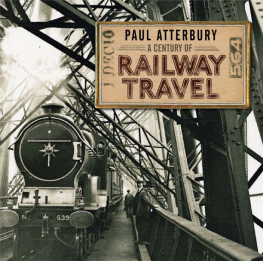Pagebreaks of the print version

THE GEOFF PLUMB COLLECTION
BRITISH RAILWAYS IN THE 1960s
WESTERN REGION
Dedication
This book is dedicated to, and in loving memory of, my wife Jackie her encouragement and support of my life-long interest and passion for railways meant I was able to devote a great deal of time to this venture.
Also to my late father Derek, who passed on to me his life-time devotion to all things railway and enabled me to fulfil my photographic ambitions from a relatively early age. Not forgetting my late mother Margaret, who managed to survive and prosper in a railway-mad family
THE GEOFF PLUMB COLLECTION
BRITISH RAILWAYS IN THE 1960s
WESTERN REGION
GEOFF PLUMB
First published in Great Britain in 2021 by
Pen and Sword Transport
An imprint of
Pen & Sword Books Ltd
Yorkshire - Philadelphia
Copyright Geoff Plumb, 2021
ISBN 978 1 47382 395 2
eISBN 978 1 47386 982 0
Mobi ISBN 978 1 47386 981 3
The right of Geoff Plumb to be identified as Author of this work has been asserted by him in accordance with the Copyright, Designs and Patents Act 1988.
A CIP catalogue record for this book is available from the British Library.
All rights reserved. No part of this book may be reproduced or transmitted in any form or by any means, electronic or mechanical including photocopying, recording or by any information storage and retrieval system, without permission from the Publisher in writing.
Pen & Sword Books Ltd incorporates the Imprints of Pen & Sword Books Archaeology, Atlas, Aviation, Battleground, Discovery, Family History, History, Maritime, Military, Naval, Politics, Railways, Select, Transport, True Crime, Fiction, Frontline Books, Leo Cooper, Praetorian Press, Seaforth Publishing, Wharncliffe and White Owl.
For a complete list of Pen & Sword titles please contact
PEN & SWORD BOOKS LIMITED
47 Church Street, Barnsley, South Yorkshire, S70 2AS, England
E-mail:
Website: www.pen-and-sword.co.uk
Or
PEN AND SWORD BOOKS
1950 Lawrence Rd, Havertown, PA 19083, USA
E-mail:
Website: www.penandswordbooks.com
Frontispiece
My younger brother Barry stands in front of me as we pose for the camera alongside No. 6100 Royal Scot on the Peter Pan Playground railway at Goodrington Sands, Devon. This was during a family holiday in June 1954 when I was aged just five. The photo was taken by my father Derek on the family Box Brownie camera. The railway opened in 1953, initially as a 7 in gauge line, and this loco was built by Luck in 1938. The line was later re-gauged to 10 in gauge and continued to operate until around 1973. It ran below and alongside the GWR line from Paignton to the Kingswear terminus and onward travel to Dartmouth station was by passenger ferry across the River Dart. This is now the Dartmouth Steam Railway, previously known as the Torbay Steam Railway and the Paignton & Dartmouth Steam Railway.
INTRODUCTION
The first two books of this series covered the Southern Region of British Railways, followed by the London Midland Region, and an explanation was given in the first as to why the took precedence over other areas, especially considering my being a Yorkshireman. This third book covers the Western Region or parts of it another area that was remote from home during my childhood years.
I was born and brought up in Sheffield, Yorkshire, firmly in London Midland and Eastern Region territory, into a railway-mad family. My father, Derek, had been introduced to the hobby at the age of about twelve by his elder brother Ken during 1935, having been taken to Sheffield Midland station to see a brand-new maroon-liveried Jubilee Class 4-6-0, and he was hooked! I made my entrance in March 1949, four years after my sister Gwyneth and followed by brothers Barry and Keith by 1950 and 1953, after which my mother, Margaret, had her hands full!
Both my mother and father had finished their schooling, latterly being in the same class, at fourteen years of age and went into the world of work prior to the outbreak of the Second World War. My father took up an apprenticeship with Brightside Engineering and my mother was helping out with her familys business running a crockery stall at Sheffields covered market, the Sheaf Market, aka the Rag & Tag, as well as at Walker & Halls Cutlery factory. This was much damaged during the German Blitz on Sheffield during December 1940.
Working in the field of heating and ventilation, my father gained a roving commission on projects widely dispersed around the country, and this usually required travelling by train in order to reach the sites involved. Frequently he would be away from home for considerable periods, staying in digs. This offered plenty of opportunities to observe the local railway workings wherever he happened to be.
Eventually, as the war progressed, he was called-up and remarkably the military authorities recognised his engineering ability after initial training, and he joined the Royal Engineers. Further training increased his skills in refrigeration and air-conditioning also keeping him away from dangerous action, though he was involved in various bombing raids on London and Sheffield.
Like many couples at the time, my parents married at a young age just nineteen years old, in September 1943, not knowing how long a future they might have together. They managed a weeks honeymoon in Colwyn Bay, travelling by train from Sheffield.
They then had to go their separate ways: my mother in the Land Army and my father with the Royal Engineers. By coincidence, they both ended up in the Hereford area for a time and were able to spend a few precious hours together occasionally. Derek was then sent on a course to learn about heat-engines at Loughborough and managed to pull some strings to get Margaret transferred to that area too.
By early 1945, Derek was posted to the Longmoor Military Railway where a specially-constructed Mobile Refrigeration Unit () train was being assembled he and a few fellow Sappers were sent off on a mystery tour, with the train hauled by Southern Railway motive power. They ended up stabled in a siding at Plymouth Friary for a few days, living in a rudimentary converted passenger coach while they tended the freezer equipment on the train. The condition of the meat stored in the wagons was tested on their return to Longmoor it was found to be perfect, which was just as well as meat was a scarce resource at the time.
Within hours of returning to Longmoor, Derek and his team re-joined the rest of their streamlined LMS Pacific took over. No-one knew where they were going but Derek was at least able to work out where they were as the train headed north along the West Coast Main Line. He concluded that Glasgow was the destination and rumours began to fly that India was the eventual end of the journey.
Sure enough, two Jubilees took over the train outside Glasgow to take it to Greenock Princes Pier for embarkation on a small tender ferry out to a large troopship, to begin a few weeks voyage to Mumbai (still Bombay in those days), via the Suez Canal. It transpired for Derek that another MRU train was being put together in India for military supplies and this was to be demonstrated to the authorities in Delhi. A cold storage unit and ice-plant was also being established in Jhansi and this was where he ended up in charge of the plant as a Staff Sergeant and situated alongside the Great Indian Peninsular Railway main line opposite Jhansi engine sheds.




